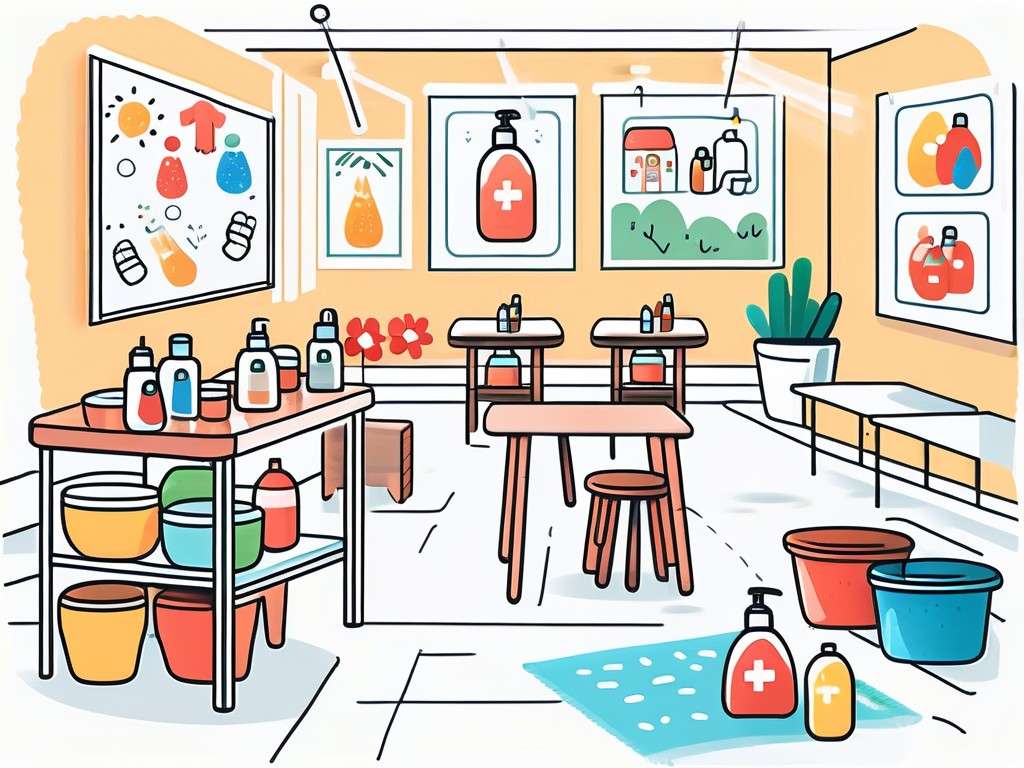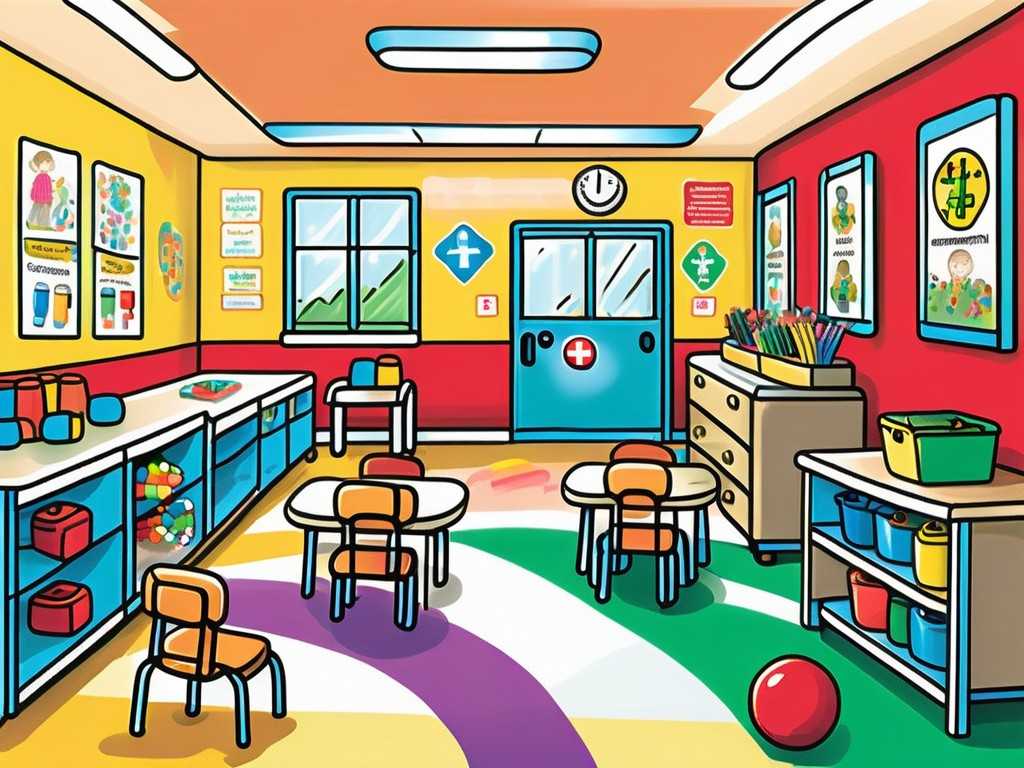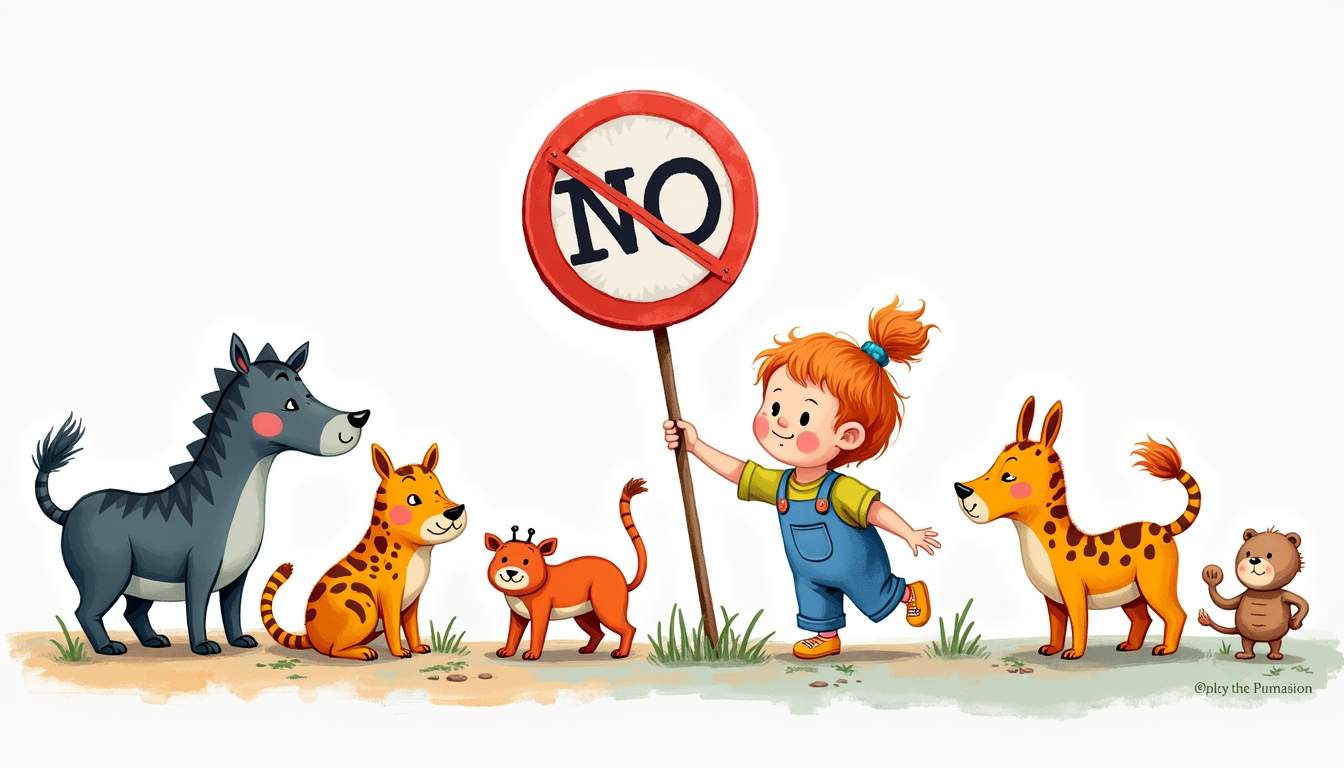As a parent, ensuring your child remains healthy and happy during their preschool years can be a daunting task. One of the most common health issues faced by children in preschool is the cold. This article explores strategies for protecting your child from colds while attending preschool.
Understanding the Common Cold: Causes and Symptoms
The common cold is caused by a variety of viruses, with rhinoviruses being the most prevalent. Colds are highly contagious, especially in preschool settings where children are in close proximity to one another. Understanding the causes can help parents take preventive measures. The transmission of these viruses often occurs through respiratory droplets when an infected person coughs or sneezes, or through direct contact with contaminated surfaces. This makes it crucial for parents to educate their children about the importance of handwashing and avoiding close contact with peers who show signs of illness.
Common symptoms of a cold include a runny or stuffy nose, coughing, sneezing, sore throat, and sometimes a low-grade fever. Unlike the flu, colds are generally milder and resolve within a week or two. However, parents should be aware of the symptoms so they can take appropriate action. In addition to the more recognized symptoms, some children may also experience mild headaches or body aches, which can be easily overlooked. Recognizing the full spectrum of symptoms can aid in differentiating a cold from other respiratory illnesses.
The Role of Preschools in Spreading Colds
Preschool environments, while nurturing and educational, can serve as breeding grounds for viruses. Children are often in close contact, are still developing their hygiene habits, and may unknowingly spread germs through shared toys or surfaces. The communal nature of preschool means that illnesses can spread quickly. Teachers and caregivers play a pivotal role in managing this environment by implementing regular cleaning routines and encouraging children to wash their hands frequently. Awareness of the cold’s contagious nature can lead to better practices in these settings, such as keeping sick children at home and promoting the use of tissues and hand sanitizers.
It’s important for parents to recognize the dynamics of these environments. Understanding that colds can be passed along through direct contact as well as by touching contaminated surfaces can empower parents to encourage healthier behaviors in their children. Additionally, discussing the importance of not sharing personal items like water bottles or snacks can further reduce the risk of transmission. Parents can collaborate with preschool staff to ensure that health policies are in place to minimize the spread of colds and other illnesses.
Recognizing the Early Signs of a Cold
Parents should be observant of their child’s behavior and physical symptoms. Early signs of a cold may include increased tiredness, irritability, or a slight runny nose. Noticing these signs early can help in taking proactive steps to reduce symptom severity or prevent the cold from worsening. Monitoring changes in appetite or sleep patterns can also provide valuable insights into a child’s health status, as these can often be early indicators of illness.
If a cold is detected early, intervention with home remedies, hydration, and plenty of rest can often mitigate symptoms and shorten illness duration. Parents should establish communication with their child, encouraging them to express how they feel. Simple remedies such as warm soups, honey for soothing a sore throat, and humidifiers can create a more comfortable recovery environment. Moreover, teaching children about the importance of rest and relaxation during illness can foster a sense of responsibility towards their own health, setting a foundation for healthy habits as they grow.
Prevention Strategies for Parents
Preventing colds is often more effective than treating them. Various strategies can be employed by parents to minimize their child’s risk of contracting colds at preschool.

Boosting Your Child’s Immune System
A strong immune system can offer a child better protection against viruses. Parents can boost their child’s immune health by ensuring they consume a balanced diet rich in fruits and vegetables, whole grains, and lean proteins. These foods provide essential nutrients that are vital for immune function.
Additionally, encouraging regular physical activity and ensuring adequate sleep can help improve overall health. Adequate hydration is also key, as water supports numerous bodily functions, including immune responses. Parents might consider incorporating fun activities like family walks or bike rides to make exercise enjoyable. Furthermore, introducing a variety of colorful fruits and vegetables can not only enhance the nutritional value of meals but also make them visually appealing to children, encouraging them to eat healthier.
The Importance of Good Hygiene Habits
Teaching children about the importance of good hygiene is crucial for cold prevention. Children should be encouraged to wash their hands frequently, especially after using the restroom, before meals, and after playing outside or with toys.
Using hand sanitizer in situations where soap and water are not available can also be effective. Reminding kids to cover their mouths and noses when sneezing or coughing helps reduce the spread of germs, making these practices essential in the preschool environment. Parents can turn handwashing into a fun activity by singing songs or using timers to ensure kids wash their hands for the recommended 20 seconds. Additionally, creating a visual reminder, such as a colorful poster about hygiene practices, can serve as an engaging tool that reinforces these important habits throughout the day.
Creating a Safe Environment at Preschool
While parents play a significant role in preventing colds, the preschool environment also needs to prioritize health strategies to keep children safe from illness. This includes not only maintaining cleanliness but also fostering a culture of health awareness among both staff and children.

Communicating with Preschool Staff
Establishing an open line of communication with preschool staff is essential for effectively managing health concerns. Parents should discuss their child’s health history and any allergies or conditions that may exacerbate cold symptoms. Regular check-ins can help parents stay informed about any health issues that may arise within the preschool community, allowing them to take proactive measures at home.
Preschools should also have policies in place for handling sick children and should communicate these policies to parents. Understanding how the preschool manages illness outbreaks can provide peace of mind and help parents feel more involved in their child’s health care. Additionally, it’s beneficial for parents to know how staff members are trained to recognize symptoms of illness early, which can help in preventing the spread of infections among children.
Selecting a Preschool with Good Health Practices
When choosing a preschool, parents should look for facilities that emphasize health and hygiene. Researching the preschool’s health policies, cleanliness standards, and response measures to illness can be illuminating. A preschool that prioritizes health will often have a clear and transparent approach to managing potential health risks, which can include regular health screenings and vaccination policies.
Inquiring about how often toys and surfaces are sanitized and whether staff receive training in health practices will help parents make informed decisions. A preschool committed to creating a healthy environment is likely to take active steps to minimize the spread of colds. Furthermore, parents may want to ask about the preschool’s approach to nutrition and physical activity, as a well-rounded focus on health can contribute significantly to children’s overall well-being and immune strength. Programs that incorporate healthy eating habits and outdoor play can create a more comprehensive strategy for preventing illness in young children.
Handling a Cold: What to Do When Your Child Gets Sick
Despite best efforts, colds can occur. Understanding how to manage your child’s illness is crucial for their comfort and recovery.

Home Remedies for Colds
There are several effective home remedies that can alleviate symptoms of colds. Encouraging your child to rest is essential, as sleep aids recovery. Warm broths, teas, and plenty of fluids can keep them hydrated and help soothe a sore throat.
Using a humidifier in their room can also help ease congestion, while saline nasal drops can relieve nasal blockages. Always consult a pediatrician before administering any over-the-counter medication.
When to Seek Medical Attention
It’s important for parents to recognize when a cold may require medical attention. If symptoms persist for more than ten days, worsen significantly, or are accompanied by a high fever, wheezing, or difficulty breathing, it is time to consult a healthcare provider.
Being proactive in your child’s health care not only aids in recovery but also prevents further complications that can arise from untreated illnesses.
The Long-Term Impact of Frequent Colds on Children
Repeated illnesses can have implications beyond temporary discomfort. Understanding these potential long-term effects is crucial for parents as they navigate their child’s health.
The Effect on Children’s Health
Frequent colds can indicate a weakened immune system or may lead to more serious health issues, such as sinusitis or ear infections. Children who experience chronic illness may miss significant amounts of school and socioemotional interactions, which can affect their overall development.
Investing in preventive measures now can help reduce the frequency of these illnesses, supporting better long-term health outcomes for children.
The Impact on Children’s School Performance
Missing school due to illness can lead to gaps in learning, making it vital to minimize cold occurrences. Studies show that children who frequently miss school due to illness may struggle academically and socially.
Encouraging attendance through health-promoting behaviors can contribute to a more solid educational foundation. As a result, parents are tasked with developing strategies that will not only keep their child healthy but also engaged in their learning journey.
In conclusion, while colds are a common aspect of childhood, informed and proactive parenting can significantly mitigate their impact. By understanding the common cold, employing prevention strategies, and taking action when illness occurs, parents can help protect their children from the frequent colds associated with preschool settings.











